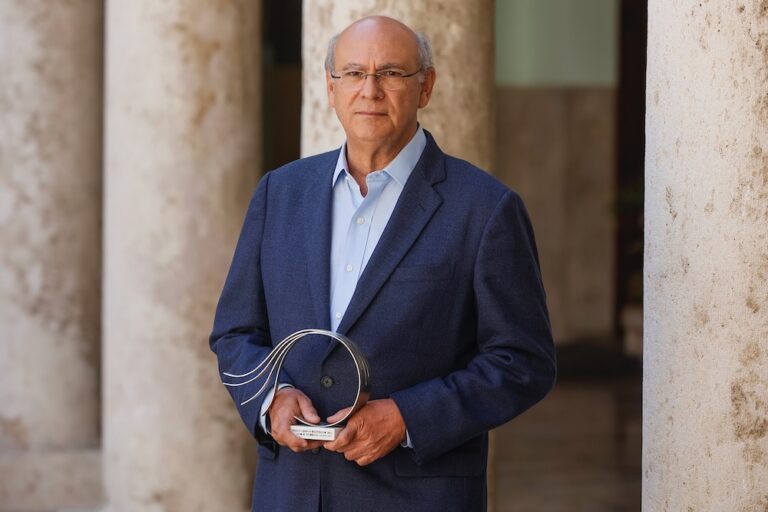IFEX-ALC members respectfully suggest to our respective governments to ensure that the process of strengthening the Inter-American system does not result in a reduction in the impact in the region of the Office of the Special Rapporteur for Freedom of Expression.
(IFEX-ALC) – 31 May 2012 – In anticipation of the Organisation of American States’ (OAS) 42nd General Assembly, to take place from 3 to 5 June in Cochabamba, Bolivia, the members organisations of the IFEX-ALC – an alliance of 16 members of the International Freedom of Expression Exchange (IFEX) in Latin America and the Caribbean – would like to take this opportunity to acknowledge the important advances that have been accomplished within the Human Rights Protection System and the intentions to strengthen the fundamental elements of the system, including the Inter-American Court, the Inter-American Commission (IACHR) and the Office of the Special Rapporteur for Freedom of Expression.
These advances have benefitted not only civil society organisations such as ours, but have also served to fortify the positions of receptive states as representatives of society in general. In addition, they have been made possible by the fact that the most of the countries that subscribe to the values of the Democratic Charge have shown continuous support for the system and, in particular, have valued the mutual strengthening of the Office of the Special Rapporteur for Freedom of Expression’s work.
We call attention to the important achievements of the Special Rapporteur that demonstrate a significant and positive impact for governments and civil society, which have made the Office of the Special Rapporteur a model for other continental human rights bodies. The Special Rapporteur has:
• Actively encouraged the decriminalisation of the offences of libel and slander throughout the region, and in particular has addressed “insult” (desacato) laws that grant special protections for the reputations of public officials.
• Provided strong leadership, working together with civil society, at the regional level in the movement for greater transparency, which has led to important successes.
• Shed light on the risks faced by journalists, particularly when covering organised crime, and has vigorously argued for the implementation of special protective measures to ensure their safety.
• Promoted processes to fight impunity in relation to crimes against journalists
• Brought attention to indirect methods of censorship at the regional level, such as the arbitrary granting of government advertising or radio and television licences, among others.
In this sense, as IFEX-ALC members with an informed perspective and experience based in freedom of expression realities, we respectfully suggest to our respective governments to ensure that the process of strengthening the Inter-American system does not result in a reduction in the impact in the region of the Office of the Special Rapporteur for Freedom of Expression.
In a 11 January 2012 letter, IFEX-ALC highlighted three worrisome recommendations regarding the special rapporteur’s mandate that were subsequently analysed during the 25 January OAS Permanent Council session. The recommendations weaken rather than strengthen the rapporteur’s autonomy and mandate to promote freedom of expression rights. Taking this into consideration, we are concerned over the following recommendations that we suggested should have been withdrawn:
• That the Rapporteur’s Office cease publishing its annual Special Report on the State of Freedom of Expression in the Americas. For more than 10 years, the findings of this report have been included in the Annual Report of the Inter-American Commission on Human Rights (IACHR). We, the undersigned organisations, believe that the Rapporteur’s Annual Report is a fundamental tool for assessing the free of expression problems and challenges in the region.
• That the budget of all rapporteurs be equalised, but without increasing the funding provided to any Rapporteur’s Office. This would mean reducing funding specific to freedom of expression, which has the largest operational budget, and thus would have an impact on the types of activities the Office of the Special Rapporteur for Freedom of Expression would be able to carry out in the region.
• The creation of a “code of conduct”, which implies greater state control over the various rapporteurs’ offices. Without a doubt, one of the rights one is granted under a democratic system is freedom of expression. Increasing state control over the Office of the Special Rapporteur for Freedom of Expression could limit its right to speak freely, which would have a negative impact in the region.
We, the undersigned organisations, reiterate our recognition and support for the mandate of the Special Rapporteur for Freedom of Expression and for the strengthening in a complimentary manner of the promotion, protection and defence of freedom of expression rights in Latin America and the Caribbean.
Sincerely,
ARTICLE 19
Associação Brasileira de Jornalismo Investigativo (Asociación brasilera de Periodismo de Investigación, ABRAJI) – Brazil
Asociación Nacional de la Prensa (ANP) – Bolivia
Asociación por los Derechos Civiles (ADC) – Argentina
Association of Caribbean Media Workers (Asociación de Trabajadores de los Medios del Caribe, ACM) – Trinidad & Tobago
Centro Nacional de Comunicación Social (CENCOS) – Mexico
Centro de Reportes Informativos sobre Guatemala (CERIGUA) – Guatemala
Comité por la Libre Expresión (C-Libre) – Honduras
Foro de Periodismo Argentino (FOPEA) – Argentina
Fundación Andina para la Observación y el Estudio de Medios (Fundamedios) — Ecuador
Fundación para la Libertad de Prensa (FLIP) – Colombia
Instituto Prensa y Sociedad (IPYS) – Peru
Instituto Prensa y Sociedad de Venezuela (IPYS VENEZUELA- Venezuela)
Observatorio Latinoamericano para la Libertad de Expresión (OLA) – Peru
Sindicato de Periodistas del Paraguay (SPP) – Paraguay
World Association of Community Radio Broadcasters (AMARC) Latin America and the Caribbean


